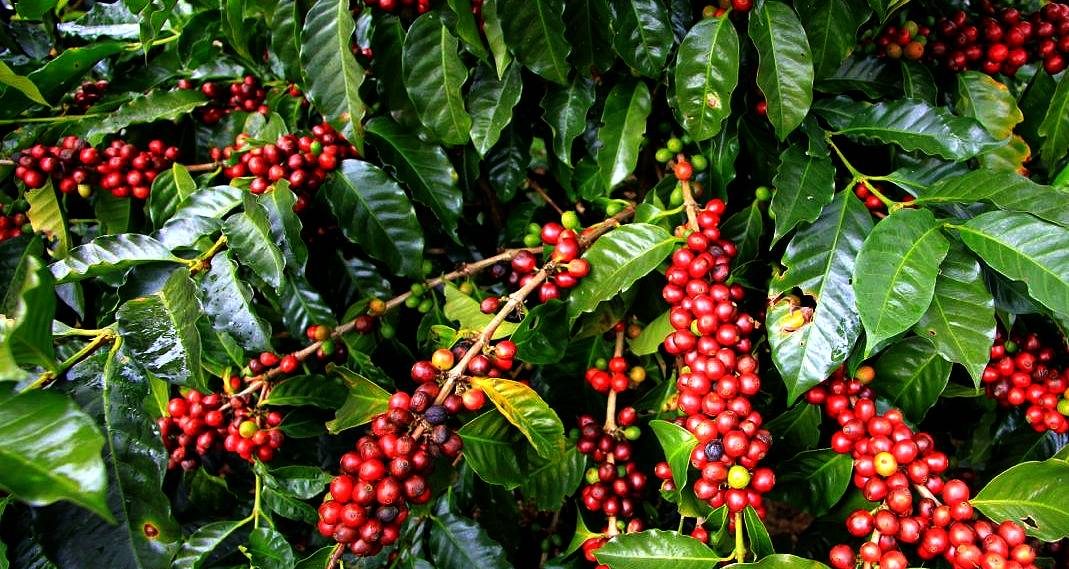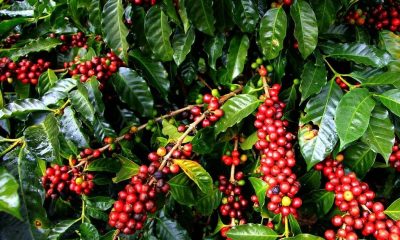Agriculture
Minister Tumwebaze Confirms Coffee Price Recovery, Calls for Quality Focus
Uganda’s coffee sector is witnessing a welcome turnaround, with prices, particularly for Robusta beans, rebounding sharply after a period of decline that had worried farmers and industry stakeholders alike. In recent months, Robusta coffee had tumbled to as low as Shs9,000 per kilogram of Fair Average Quality (FAQ) and dry coffee cherries (kiboko) dipped to Shs5,000, down from historical averages of Shs13,000 and Shs7,000, respectively. This slump was largely attributed to global oversupply and favourable weather conditions in major producing countries such as Brazil, Vietnam, and India.
According to the Ministry of Agriculture, Animal Industry and Fisheries (MAAIF), current market data shows a significant recovery. Coffee now sells at Shs13,000-14,000 per kilogram for FAQ Robusta and Shs13,500-14,000 per kilogram for Arabica parchment. Minister Frank K. Tumwebaze attributed this recovery to a combination of Uganda’s consistent quality, resilience among farmers, and strategic market interventions by the government and coffee value chain actors.
The international market has played a decisive role in the rebound. Reports indicate that a frost event in Brazil, coupled with reduced exports and declining coffee inventories in Intercontinental Exchange (ICE) warehouses, tightened global supply and sent bullish signals to international buyers. Such fundamental factors, often beyond Uganda’s immediate control, underscore the country’s vulnerability to global coffee market dynamics.
Policy Implications and Lessons for Uganda
From a political economy perspective, Uganda’s experience mirrors the broader theory of commodity dependence, where small- and medium-producing countries are subject to volatility driven by global supply-demand imbalances. Uganda’s proactive government interventions—such as supporting cooperatives, monitoring prices, and providing timely market information—reflect a developmental state approach, emphasizing strategic regulation and stakeholder coordination to shield domestic producers from external shocks.
Historically, similar precedents can be drawn from Kenya’s coffee sector. In periods of price volatility, government engagement in stabilizing farm-gate prices and strengthening farmer cooperatives has proven critical for maintaining both economic stability and social cohesion in rural coffee-producing regions. Uganda appears to be adopting a comparable strategy, emphasizing both market intelligence and quality assurance.
Minister Tumwebaze has emphasized that while price recovery is encouraging, maintaining Uganda’s reputation as a premium coffee producer is critical. This requires strict adherence to quality standards in harvesting, drying, and processing, as well as fostering value addition initiatives. Economists argue that such measures not only enhance resilience to price shocks but also increase domestic value capture, ensuring that higher returns benefit farmers rather than being lost along the export chain.
The Role of Farmer Organizations and Cooperatives
A significant focus in Uganda’s coffee strategy is the empowerment of farmer organizations and cooperatives. By strengthening collective bargaining power, farmers can negotiate better prices, access financing, and participate more actively in international value chains. This aligns with the institutionalist perspective in development economics, which emphasizes the role of structured local institutions in mitigating the negative effects of global market volatility.
Outlook for Uganda’s Coffee Sector
If sustained, this rebound could stimulate renewed investment in coffee production, both in expanding acreage and adopting improved agricultural practices. However, analysts caution that the sector remains vulnerable to external shocks, including climate events and shifts in global consumption trends. Therefore, Uganda’s policymakers must continue to combine market intelligence, quality enforcement, and farmer capacity building to safeguard both livelihoods and national export earnings.
Uganda’s coffee price recovery reflects a combination of global market dynamics, strategic government intervention, and the resilience of domestic producers. The current momentum provides an opportunity for Uganda to reinforce its position as a leading premium coffee exporter in Africa, while also institutionalising systems that protect farmers against the cyclical nature of international commodity markets. With continued commitment to quality, organisation, and innovation, Uganda’s coffee sector can remain a stable backbone of the economy and a reliable source of income for millions of households.
Comments



























